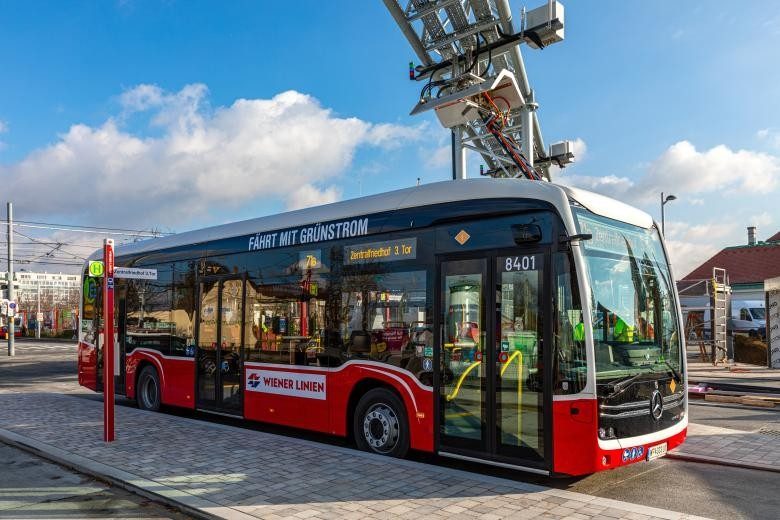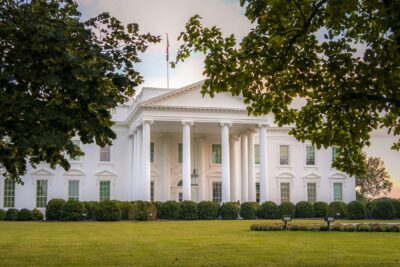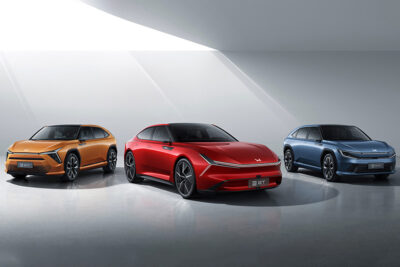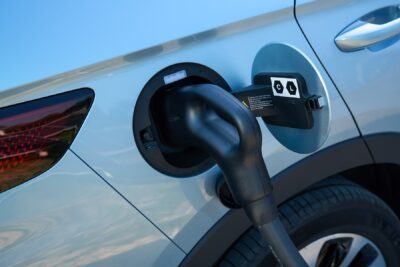60 Mercedes eCitaro buses set to arrive in Vienna
The first four eCitaro electric buses now arriving from Daimler come from an order placed in November 2022, when Wiener Linien awarded contracts for 60 battery buses and ten hydrogen buses. The contract for the battery buses was awarded to Daimler subsidiary EvoBus, while the contract for the H2 buses was awarded to Polish manufacturer Solaris. In mid-2023, it was announced that the contract with the Polish manufacturer Solaris had been terminated. According to a Hungarian specialist news site Magyarbusz, Wiener Linien withdrew from the framework agreement with Solaris because the leased demo bus did not perform satisfactorily during the test drives. On the other hand, Solaris claims to have stopped the order itself after Wiener Linien did not finalise it by the deadline.
The contract with Daimler Truck is entering the implementation phase as the first four Mercedes-Benz eCitaros of the 60 new electric buses ordered around a year ago are now in trial operation on routes 71A (Zentralfriedhof 3. Tor to Schwechat) and 71B (Zentralfriedhof 3. Tor to Kaiserebersdorf). A rapid charging station equipped with four 300 kW chargers has been set up at the ‘Zentralfriedhof 3 Tor’ terminus, where the electric buses can be charged for around 20 minutes after each round. Overnight, the buses can be charged at the new eMobility Competence Center in the Vienna district of Siebenhirten.
The delivery of all eCitaro buses should be completed by 2025. In the same year, Wiener Linien plans to convert nine bus routes to battery-powered vehicles and electrify around a fifth of the entire bus fleet. The purchase of the electric buses and the installation of the fast-charging station are funded by the EU via the EBIN program of the Ministry of Climate Protection in collaboration with Wiener Linien, with a total sum of 48 million euros.
When the contract was awarded a year ago, Daimler Truck said the battery buses would be low-floor vehicles with a 392 kWh lithium-ion battery system of the latest generation (NMC 3). In addition to plug-in charging, fast charging with up to 300 kW is also possible via the buses’ pantographs.
The order was preceded by tests with the buses at Wiener Linien. Based on these findings, lines 17A, 57A, 61A, 61B, 64A, 64B, 70A, 71A, and 71B are being electrified with battery buses by the end of 2025. The above-mentioned Competence Center in Siebenhirten, located in the south of the Austrian capital, will serve as the electric bus base camp. Last year, the company put the investment in this depot at 40 million euros. This is where Wiener Linien is building a charging facility for 52 electric buses, as well as infrastructure for maintenance and service activities.
In addition to the planned 12-metre buses, Wiener Linien has been using fully electric eight-metre minibuses on the inner city lines 2A and 3A since 2013. “Wiener Linien is a pioneer in the field of e-mobility. By 2025, 60 large electric buses will be making their rounds in Vienna alongside the minibuses. This will effectively save CO2 and ensure an even better quality of life for residents,” says Gudrun Senk, Managing Director of Wiener Linien for the technical area.
Wiener Linien is a subsidiary of Wiener Stadtwerke GmbH. The public transport provider builds and operates the subway, bus and streetcar networks in the Austrian capital. This public transport network is used by almost two million passengers every day. The bus fleet currently comprises around 400 vehicles. According to the company, the 127 bus lines cover a total route length of around 850 kilometres and 4,230 stops.
Update 20 February 2024
From now on, only battery-electric buses are in service on Vienna’s 71A and 71B lines. From April, further electric 12-metre buses will also be used on lines 61A and 61B. As mentioned above, 60 battery buses and 10 hydrogen buses will be in operation in Vienna by 2025. The electric buses will be charged, maintained and repaired at the new competence centre for electric mobility, which has now been opened.
Vienna is investing around 48 million euros in purchasing the buses and installing fast charging stations together with the Ministry of Climate Protection and the EU. Operator Wiener Linien has spent a further 40 million euros on the construction of the EV Competence Centre, including charging stations, a PV system and building extensions.
Update 28 February 2024
Wiener Linien will be converting its line 39A to hydrogen buses in 2025 – but it has now been confirmed that this will not be with the help of Solaris buses. The Portuguese manufacturer CaetanoBus has won the corresponding Europe-wide tender. Ten H2.City Gold buses with fuel cell technology from Toyota will be launched in the course of next year for Wiener Linien in the Austrian capital.
Update 06 May 2024
Vienna’s electric bus fleet is growing as planned. Another four lines are now being served by Mercedes eCitaro models. These are part of a total order of 60 ZEBs placed by operator Wiener Linien in late 2022.
Passengers may board the new buses on route 61A and 61B between Liesing and Vösendorf-Siebenhirten as well as 64A (Atzgersdorf, Ziedlergasse – Liesing) and 64B (Hetzendorf – Alterlaa). Lines 17A and 70A are due to follow this autumn.
By the end of 2025, a total of 60 battery buses and ten hydrogen buses will be in operation in the Austrian capital.
wienerlinien.at (in German), wienerlinien.at (update, in German), wien.gv.at (update II, in German), wienerlinien.at (update May ’24, in German)






0 Comments